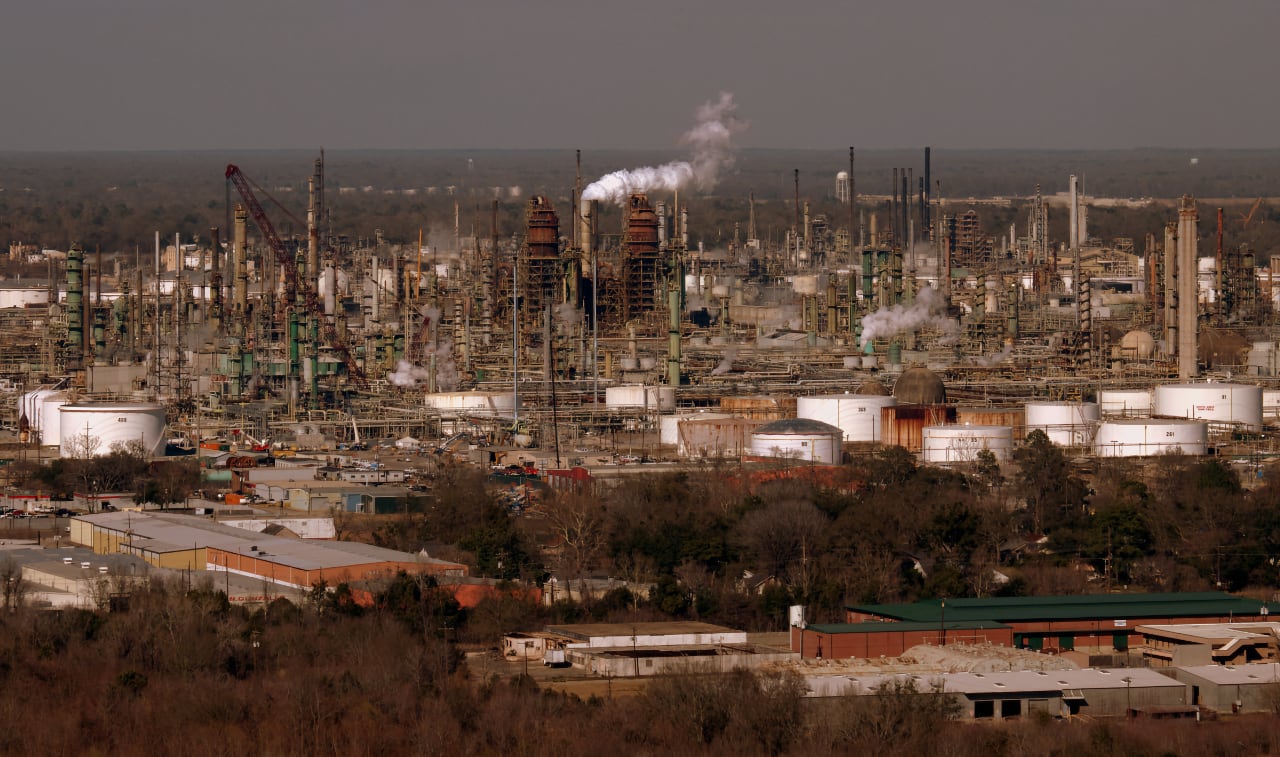Displaying items by tag: air pollution
Editorial: As summer sizzles and pops, EPA makes a bad energy move
 The Environmental Protection Agency headquarters in Washington, D.C. in the William J. Clinton Federal Building. The EPA is considering changes to pollution regulations intended to at least forestall some risks of global climate change. EPA
The Environmental Protection Agency headquarters in Washington, D.C. in the William J. Clinton Federal Building. The EPA is considering changes to pollution regulations intended to at least forestall some risks of global climate change. EPA
With a backdrop of record heat and floods, EPA moves to deregulate greenhouse gases that are heating the planet
Stephen Smith is the executive director of the Southern Alliance for Clean Energy.
KNOXVILLE — July was brutal: As the Southeast sizzled under a stagnant heat dome, families still struggled to recover from hurricanes Helene and Milton, and communities reeled from catastrophic flash flooding in Texas. Yet in the face of this mounting climate crisis, the government has launched an unprecedented assault on the environmental protections that keep Americans safe.
This week, the new Environmental Protection Agency (EPA) under the Trump Administration moved to repeal the 16-year-old scientific finding that greenhouse gas pollution and emissions from power plants, the oil, gas and coal industries, and vehicle emissions endanger public health and welfare. Without this endangerment finding, the EPA will be forced to abandon its responsibility to set limits on the pollution that’s driving more frequent and severe heat waves, floods and storms.
The EPA has one job: to protect the people and places we love — our families, our communities, our children’s future. It defies logic and common sense to remove the foundational pillars of our pollution rules precisely when climate impacts are accelerating and we need protections and proactive solutions the most. Simultaneously, the Administration is also recklessly slashing funding and staffing at NOAA, the agency responsible for helping us prepare for disasters, and FEMA, the agency responsible for helping us recover from disasters.
The administration is gaslighting Americans by telling us that climate disruption isn’t a threat when we can see with our own eyes the parade of horribles of repeating record-breaking climate disasters. 2024 was the hottest year on record by a wide margin, flash flood warnings in 2025 have already exceeded previous records and American families — from Texas flood victims to Southeast hurricane survivors — are paying the price with their lives, homes and livelihoods.
Global temperatures are off the charts for a reason: 4 factors driving 2023’s extreme heat and climate disasters

2023’s weather has been extreme in many ways. AP Photo/Michael Probst
This story was originally published by The Conversation. Michael Wysession is Professor of Earth, Environmental and Planetary Sciences, Arts & Sciences at Washington University in St. Louis.
Between the record-breaking global heat and extreme downpours, it’s hard to ignore that something unusual is going on with the weather in 2023.
People have been quick to blame climate change – and they’re right: human-caused global warming plays the biggest role. The weekslong heat wave that started in June 2023 in Texas, the U.S. Southwest and Mexico would have been virtually impossible without it, one study found.
However, the extremes this year are sharper than anthropogenic global warming alone would be expected to cause. September temperatures were far above any previous September, and around 3.1 degrees Fahrenheit (1.75 degrees Celsius) above the preindustrial average, according to the European Union’s earth observation program.
July was Earth’s hottest month on record, also by a large margin, with average global temperatures more than half a degree Fahrenheit (a third of a degree Celsius) above the previous record, set just a few years earlier in 2019.
- michael wysession
- climate change
- copernicus climate change service
- noaa space weather prediction center
- temperature variability
- underwater volcanic eruption
- solar fluctuation
- el nino
- weather extreme
- extreme heat
- la nina
- el nino southern oscillation
- enso
- pacific
- sea surface temperature
- global average temperature
- water vapor
- aerosol
- air pollution
- heat wave
- forest fire
- flash flood
- climate model
Juneteenth: An Urgent Call for Climate Solutions
 ExxonMobil’s Baton Rouge, LA refinery, Feb. 11, 2016. Later that day, shortly before midnight, a massive fire broke out, bathing the night sky in an orange glow visible for miles around.
ExxonMobil’s Baton Rouge, LA refinery, Feb. 11, 2016. Later that day, shortly before midnight, a massive fire broke out, bathing the night sky in an orange glow visible for miles around. ![]() Jim Brown/Flickr
Jim Brown/Flickr
Generations of Black Americans have faced racism, redlining and environmental injustices, such as breathing 40 percent dirtier air and being twice as likely as white Americans to be hospitalized or die from climate-related health problems.
AMERICA TODAY — This week, NPR’s Living on Earth podcast and illustrated transcript elucidates how relevant the broader meaning and historic context of Juneteenth is for all American citizens and residents.
Host Steve Curwood discusses with Heather McTeer Toney her new book, ‘Before the Streetlights Come On: Black America’s Urgent Call for Climate Solution.’
McTeer served as the Southeast Regional Administrator of the Environmental Protection Agency in the Obama administration and is now Executive Director of Beyond Petrochemicals. She argues that the quest for racial justice must include addressing the climate emergency and that the insights of people who experienced the negative health and socio-economic impacts of the petrochemical industry must be tapped to develop solutions that will work on the ground.
- juneteenth
- environmental justice
- racial justice
- heather mcteer toney
- social justice
- racism
- air pollution
- petrochemical
- petrochemical industry
- living on earth
- npr podcast
- slavery
- history of slavery
- climate emergency
- cancer alley
- steve curwood
- public health
- environmental racism
- mississipi river
- baton rouge
- black vote
- black and brown people
- interfaith power and light
- evangelical on the right
- religious leadership
- evangelicals for the environment
U.S. Supreme Court’s recent clean-air ruling renews spotlight on fossil-energy producers like TVA

Supreme Court air-pollution ruling calls into stark context all that must be done
This story was originally published by Tennessee Lookout.
KNOXVILLE — The U.S. Supreme Court’s ruling limiting the power of the Environmental Protection Agency to regulate carbon emissions that cause climate change has renewed the spotlight on the Tennessee Valley Authority, the nation’s largest public utility and Tennessee’s primary source of electricity.
The case involved EPA efforts to implement a key provision of the Clean Air Act in a challenge brought by 15 Republican-led states. That provision, which never went into effect, would have required existing power plants to shift from dirty sources of energy — such as coal — to cleaner sources, including solar and wind, as part of an urgent effort to reduce global warming.
New digital maps outline precious pockets of remaining US biodiversity and the threats they face
 The endangered Indiana bat is among threatened and endangered species in Great Smoky Mountains National Park. U.S. Fish and Wildlife Service
The endangered Indiana bat is among threatened and endangered species in Great Smoky Mountains National Park. U.S. Fish and Wildlife Service
Southern Appalachians show red as a warning on new detailed biodiversity maps
This story was originally published by the Sylva Herald.
SYLVA — Great Smoky Mountains National Park has long been known for its abundance of different species of flora and fauna.
Credit old mountains in a warm, sunny and wet region with varying types of climate, soil and stone for that large number.
“The park is almost certainly the most biodiverse national park in North America,” said Paul Super, national park science coordinator. “And certainly the most studied of any national park.”
A group of environmental organizations recently put together a series of maps illustrating the regions with the biggest threats to their biodiversity, and the area around Jackson County and the national park showed up in the red, showing risk. One such map, based on NatureServe data, is among the most detailed maps of endangered and threatened species ever produced.
Technical Society of Knoxville Centennial Celebration
Jun 14 6:30 p.m. EST
The Turning Point: Things were never the same after 1921, when technology was changing the city in several surprising ways
Jack Neely, Executive Director of the Knoxville History Project
Technical Society of Knoxville (TSK)
Charity Banquet at Crowne Plaza for the Charles Edward Ferris Engineering Endowments at University of Tennessee, Knoxville - the public is invited - RSVP by June 8
Ferris was the first Dean of UTK’s College of Engineering.
More details on the event, sponsorships, and reservations
The Technical Society of Knoxville was founded in 1921. It has met over 4,000 times to discuss the application of technology from early Knoxville’s coal smoke and traffic problems to present Knoxville’s transportation air pollution and the impact of electric car technologies.
The days the Earth stood still (Part 1): Covid cleared the air in the lonely Smokies
 Great Smoky Mountains National Park Air Resource Specialist is seen at the Look Rock air quality research station. Courtesy National Park Service
Great Smoky Mountains National Park Air Resource Specialist is seen at the Look Rock air quality research station. Courtesy National Park ServiceThe lack of regional and local vehicle traffic during the pandemic greatly reduced measurable pollution in Great Smoky Mountains National Park.
This is your Hellbender weekend read, and the first in an occasional Hellbender Press series about the effects of the Covid-19 pandemic on the natural world
Great Smoky Mountains National Park shut down for six weeks in 2020 during the Covid-19 pandemic. Recorded emissions reductions during that period in part illustrate the role motor vehicles play in the park's vexing air-quality issues. The full cascade of effects from the pollution reductions are still being studied.
Hellbender Press interviewed park air quality specialist Jim Renfro about the marked reduction of carbon dioxide and other pollutants documented during the park closure during the pandemic, and the special scientific opportunities it presents. He responded to the following questions via email.
Hellbender Press: You cited “several hundred tons" in pollutant reductions during an interview with WBIR of Knoxville (in 2020). What types of air pollutants does this figure include?
- great smoky mountains national park
- coronavirus
- smokies
- pandemic
- air pollution
- covid19
- air quality
- shutdown
- pollutant reduction
- carbon dioxide
- co2
- motor vehicle
- jim renfro
- nox
- voc
- improvement
- haze
- ozone
- look rock
- emission
- greenhouse gas
- visitation
- visitor
- traffic volume
- analysis
- monitoring station
- particulate matter
- mercury
- acid deposition
- quality control
- quality assurance
- so2 regional haze rule
- national park service
- nps
- air resource specialist
- ecosystem
- bioaccumulation
- so2
- road closure
- power plant
- epa
- environmental protection agency
Air pollution deadlier than COVID-19!
ScienceDirect: Global mortality from outdoor fine particle pollution generated by fossil fuel combustion
New report estimates 8.7 million premature deaths anually from fine particulate matter (PM2.5)
Fossil fuels are the major source of invisible airborne particles that cause disease and mortality.